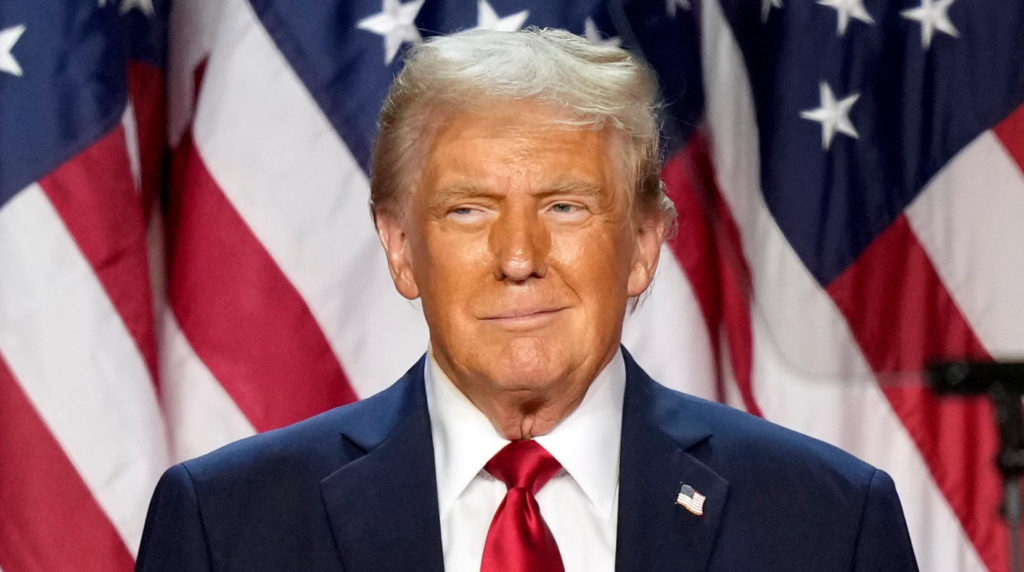Market Analysis: S&P 500 Rebounds Amid Tariff Concerns
The S&P 500 halted its four-day decline yesterday, despite fluctuations following President Trump’s suggestion of implementing 25% tariffs on European imports. Investors remained cautious ahead of Nvidia’s highly anticipated earnings report. Meanwhile, Instacart shares plummeted to record lows after the company failed to meet revenue expectations and provided disappointing forecasts.
Nvidia Reinforces AI Sector Strength

The semiconductor giant, often referred to as the cornerstone of Wall Street’s technological advance, released quarterly results confirming sustained demand for its processors.
This marks Nvidia’s first financial report since Chinese AI firm DeepSeek launched its cost-effective, open-source model in January—an event that triggered a 17% single-day drop in Nvidia’s valuation. CEO Jensen Huang moved to dispel concerns about AI market saturation, emphasizing his company’s continued leadership in the sector:
- Quarterly revenue reached $39.3 billion, representing a 78% year-over-year increase from Q4.
- Data center revenue—a key indicator of AI computing demand—nearly doubled to $35.6 billion.
- The company described demand for its latest Blackwell chip series as “amazing,” with these products contributing 28% of revenue—exceeding expectations despite initial production challenges.
Wall Street’s Significant Investment Stake

As the technological foundation for AI development, Nvidia’s performance serves as a barometer for the entire industry, making these quarterly figures particularly significant. Investor attention is warranted: Nvidia accounted for 22% of the S&P’s gains last year, compared to Amazon’s 6% contribution.
While Nvidia surpassed sales and profit projections, some investors considered the results less extraordinary than previous quarters’ performances. Consequently, after volatile after-hours trading, the company’s stock price settled slightly lower as market participants evaluated the report.
Looking forward, while DeepSeek concerns have diminished, new challenges loom—including potential additional restrictions on Nvidia’s exports to China and uncertainty regarding sustained data center investments from major clients such as Alphabet, Meta, and Amazon.
Global Headlines

Trump administration prepares federal workforce reduction. Senior officials issued a memorandum yesterday instructing government agencies to develop reduction-in-force plans, potentially resulting in employee terminations and position eliminations. The reductions could be substantial: During his first Cabinet meeting this term, President Trump suggested the EPA might reduce staff by 65%. Elon Musk, though not a Cabinet member, attended the meeting as the face of the administration’s cost-cutting initiative. These layoffs affecting civil service-protected employees will likely face legal challenges.
Texas measles outbreak claims lives. An unvaccinated school-aged child in West Texas has died amid a measles outbreak that has infected at least 124 individuals in Texas and spread to neighboring New Mexico, according to local health authorities. State officials indicated numerous infected individuals were unvaccinated children or those with undetermined vaccination status. Health and Human Services Secretary Robert F. Kennedy Jr. confirmed a second fatality. These represent the first measles-related deaths in the United States in a decade.
Ukraine’s Zelensky plans US visit for minerals agreement. Ukrainian President Volodymyr Zelensky is reportedly traveling to Washington, DC, tomorrow to formalize an arrangement granting the US access to Ukraine’s mineral resources, following framework discussions between both nations. However, critical security matters remain unresolved. Draft agreements reviewed by media outlets lacked explicit US security guarantees, merely stating that the US “supports Ukraine’s efforts to obtain security guarantees needed to establish lasting peace.”
Supreme Court Signals Shift on Reverse Discrimination Cases
The typically divided Supreme Court demonstrated what Justice Neil Gorsuch termed “radical agreement” during yesterday’s arguments regarding standards for proving workplace discrimination against majority group members (e.g., straight, white, or male individuals).
This development favors plaintiff Marlean Ames, who alleges she was denied promotion and subsequently demoted due to her heterosexuality. Both positions were filled by gay individuals whom Ames claims were underqualified. Her employer counters that Ames was passed over due to interpersonal issues and departmental reorganization.
Even a unanimous ruling for Ames wouldn’t constitute a finding of discrimination (that determination would remain with lower courts). Rather, the Supreme Court is examining whether certain courts can legitimately require historically non-marginalized groups to provide additional contextual evidence to establish discrimination claims, based on assumptions that reverse discrimination occurs infrequently.
Broader implications: Ames contends this outdated requirement undermines equal protection rights, echoing arguments that led to the Court’s 2023 decision striking down affirmative action in college admissions. While Ames’s case doesn’t directly address workplace DEI initiatives, legal experts suggest it could facilitate increased reverse discrimination litigation challenging such programs.
Digital Media Trends: YouTube Dominates Podcast Consumption

Podcasting has evolved beyond an audio-only medium for personable voices, as “wherever you get your podcasts” increasingly means YouTube. The platform attracts over 1 billion monthly podcast viewers, significantly outpacing Spotify and Apple’s Podcasts app as the premier podcast destination, according to Bloomberg.
What’s transforming podcast creators into de facto YouTube content producers? Alphabet, YouTube’s parent company, informed Bloomberg this shift resulted from strategic investments in the format, including dedicated algorithmic categorization to connect podcast content with interested viewers. This trend has been developing: In 2022, as Spotify downsized its internal podcast studio and reduced staff to control costs, YouTube began offering podcasters up to $300,000 to create video versions. Spotify has likewise embraced visual content—reporting approximately 170 million video podcast viewers in June and launching new creator monetization options in January.
Additional Developments

- Actress Michelle Trachtenberg, known for roles in “Harriet the Spy,” “Buffy the Vampire Slayer,” and “Gossip Girl,” has died at 39.
- House Republicans passed a budget framework Tuesday evening. While the current proposal contains numerous provisions, significant modifications are expected during the extended budget finalization process.
- Israel and Hamas exchanged the bodies of four Israeli hostages for hundreds of Palestinian prisoners whose release Israel had previously delayed, completing the initial phase of their ceasefire agreement.
- Amazon unveiled Alexa+, its AI-enhanced virtual assistant upgrade, despite the product not functioning as a streaming service.
- Slack experienced significant service disruption yesterday, preventing workplace communications and meme-sharing.

